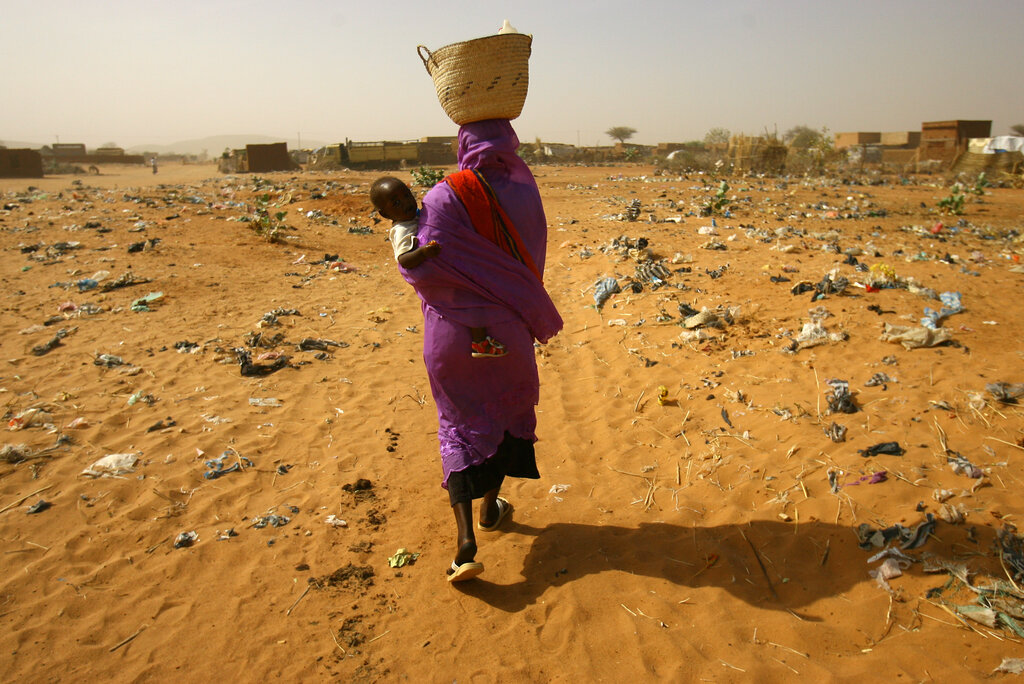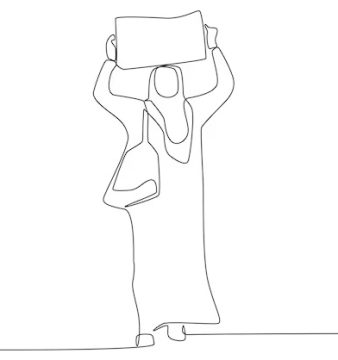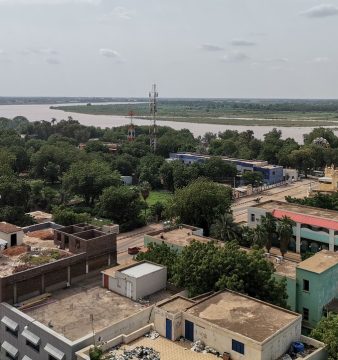Sudan’s Road to Famine

It has been almost 14 months – 420 days – since the war started in Sudan. The country is experiencing one of the worst humanitarian crises the world has ever seen, according to the United Nations (UN), in addition to Israel’s recent war on Gaza.
According to the World Food Program (WFP), more than 7.7 million have been displaced, making for the world’s largest displacement crisis. Nearly 18 million country-wide face extreme food insecurity, including 5 million experiencing emergency hunger conditions and on the edge of a famine.
As a medical student going through training rounds at Karima Teaching Hospital which is located in Northern state I met seven-year-old boy, Hassan Ahmed. Hassan was recovering from severe malnutrition which, using the Mid-upper Arm Circumference (MUAC) grading system, put him in the red “danger” zone. Meeting him for the first time and according to his general appearance, I did not think he was older than four years old. He was just lying in bed without the energy to walk, talk or even feed himself. He was so thin, just skin and bones, and if not for his chest moving up and down, you would mistake him for a corpse. Hassan and his family were trapped in Khartoum for over nine months after the war started in a poorly managed area with little to no food access and medical facilities.
According to UNICEF, half of Sudan’s population, which amounts to over 41 million people, half of which are children and 6.5 million of them are under five years old. Due to ongoing conflict and already poor and difficult circumstances, 4 million children are acutely malnourished, and about 730,000 suffer from severe acute malnutrition, including Hassan. Amira, Hassan’s mother, says, ‘Some days, we would just sleep to forget the hunger even though the gunshots and bombing made it very hard to. My son was fading away in front of my eyes and I wasn’t able to do anything but pray. Sometimes, I would even ask God to take my soul if that would help Hassan live. We had to bury many children who died of hunger or lack of medicine, and I was so scared my son’s turn would be next.’
I once watched a movie where the main characters were police officers and despite the horrors they face daily, one said to the other, ‘A dead kid is different. A dead kid would change you forever.’ Even though I’ve witnessed death a couple of times in my life, the first time I’ve witnessed a child’s death was pure horror.
As students at Al Buluk Pediatric Hospital, we would observe and shadow doctors at emergency departments. One time, a mother came running, holding her one-month-old baby telling us nothing, but to help him. The doctors hurried to check his vitals. Moments in, they started doing CPR, and we, the students, were responsible for holding the clock and timing as there is a crucial time limit for CPR. After a while, the attending announced the child’s death and went to comfort the mother. She said nothing and did not even shed a tear. She just sat next to her baby and asked, ‘Do you want to eat, my baby? Please wake up. You must be hungry.’ I remember running out of the emergency room hiding behind the nearest corner and crying my eyes out that day. Just recalling his powerless body so fragile, so stiff, his eyes completely out of life, my heart breaks to a million pieces. Now, imagine this scenario with a mother who cannot reach a hospital for a doctor to treat her starving, dying child with no one to even give her an ounce of hope that her child might survive. Hassan, his mother, their neighbours, and millions of Sudanese families are living in this scenario today and for the coming days, weeks, months, or even years if aid is not widespread and the war continues.
According to the UN, since the war began on 15 April 2023, more than 14,000 people have been killed and tens of thousands wounded, and half of the country’s population – 25 million people – need life-saving and assistance. More than 8.6 million people have been forced to flee their homes, including 1.8 million refugees. The director of Operations and Advocacy at the UN Office for the Coordination of Humanitarian Affairs (OCHA), Edem Wosornu, said, ‘If we are to avert famine, the parties must take urgent steps to facilitate humanitarian relief for all civilians in need as required under international humanitarian law. The people of Sudan cannot wait another month week or even day for their suffering to stop. Every day that passes puts more lives at risk,’ she said.
Decomposing bodies, stacked trash, food shortage and no water supply are all factors that add to the suffering of the people of Sudan. Some have not had access to clean drinking water for a year now and risk their lives every time they go out to find clean drinking water. Unfortunately, the polluted, dirty water they drink either directly from the river, without filtration, or unsanitary wells will cause illnesses mainly different types of diarrhea. Diarrheal diseases will lead the body to lose already absent nutrients and cause dehydration, which if left untreated, counts for a major cause of death.
Fortunately, Hassan was able to make a full recovery – his face, body and hopefully, soul are nourished. However, Hassan is one of the lucky few. Most people, including children, are not as lucky and are dying due to severe malnutrition, as a result of the ongoing war in Sudan. Millions of Sudanese are at risk of turning to bones before their death. Now, the biggest dream one can have is access to food and water – even war and death is nothing in comparison to starving to death. These are humans living and breathing, but struggling to survive, unable to eat, drink or even smile. Their lives have been reduced to fleeing and dying.
For information on how to help and stop the fast train to famine in Sudan, see the link below.
Lamia Abdallah Ahmed is a final-year medical student at Ahfad University for Women (AUW). She is also a content writer and storyteller who lives for reading, writing, and fighting for human rights.




